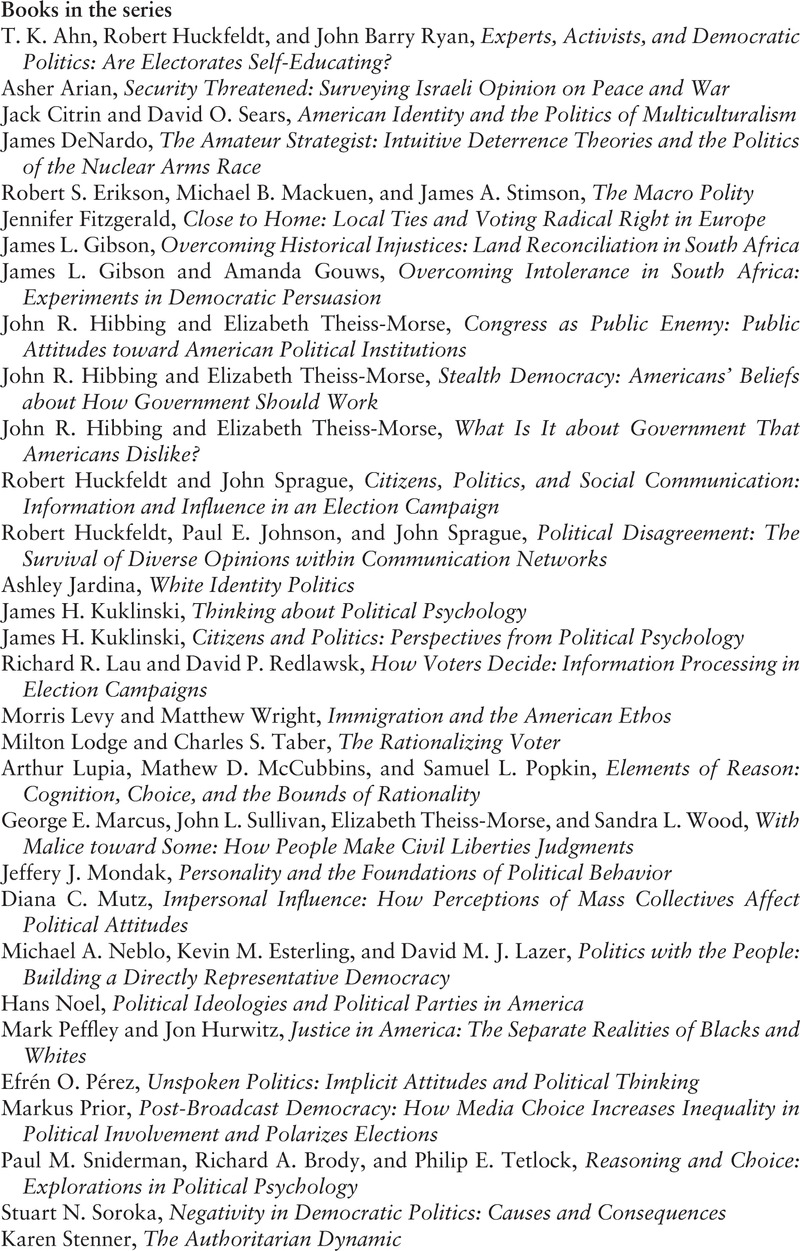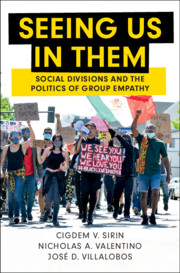Book contents
- Seeing Us in Them
- Cambridge Studies in Public Opinion and Political Psychology
- Seeing Us in Them
- Copyright page
- Dedication
- Contents
- Figures
- Tables
- Prologue
- 1 The Puzzle
- 2 Group Empathy Theory
- 3 Measuring Group Empathy
- 4 An Origin Story
- 5 Group Empathy and Homeland Security
- 6 Group Empathy and the Politics of Immigration
- 7 Group Empathy and Foreign Policy
- 8 Group Empathy in the Era of Trump
- 9 Group Empathy, Brexit, and Public Opinion in the United Kingdom
- 10 Cultivating Group Empathy and Challenging Ethnonationalist Politics
- Epilogue Group Empathy in Response to the COVID-19 Pandemic
- References
- Index
- Books in the series
- References
Books in the series
Published online by Cambridge University Press: 11 March 2021
- Seeing Us in Them
- Cambridge Studies in Public Opinion and Political Psychology
- Seeing Us in Them
- Copyright page
- Dedication
- Contents
- Figures
- Tables
- Prologue
- 1 The Puzzle
- 2 Group Empathy Theory
- 3 Measuring Group Empathy
- 4 An Origin Story
- 5 Group Empathy and Homeland Security
- 6 Group Empathy and the Politics of Immigration
- 7 Group Empathy and Foreign Policy
- 8 Group Empathy in the Era of Trump
- 9 Group Empathy, Brexit, and Public Opinion in the United Kingdom
- 10 Cultivating Group Empathy and Challenging Ethnonationalist Politics
- Epilogue Group Empathy in Response to the COVID-19 Pandemic
- References
- Index
- Books in the series
- References
Summary

- Type
- Chapter
- Information
- Seeing Us in ThemSocial Divisions and the Politics of Group Empathy, pp. 311 - 312Publisher: Cambridge University PressPrint publication year: 2021



